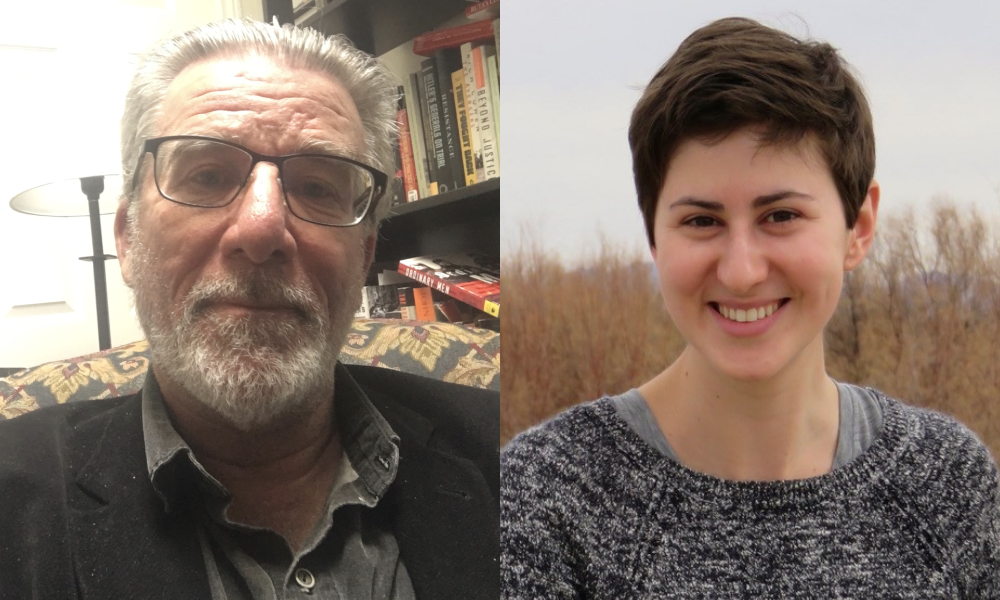
Application alleges findings ‘internally inconsistent,’ ‘not based on rational chain of analysis’

Six organizations and individuals have applied to the Federal Court seeking judicial review of the Canadian Judicial Council’s decision to close the complaint against Tax Court of Canada Justice David Spiro.
The applicants want a review of the decision to close the complaint and not constitute an inquiry committee to further investigate the judge’s conduct. They also seek various declarations, including that the CJC’s reasons “were not justified, transparent and intelligible.”
On May 21, a CJC Judicial Conduct Review Panel concluded that, while Justice Spiro made “serious mistakes,” the mistakes were not so severe to warrant a recommendation for removal.
The applicants submit that this finding is unreasonable and that the CJC’s decisions “are internally inconsistent and are not based on a rational chain of analysis.”
The applicants are Queen’s Law Professor Leslie Green, Osgoode Hall Law School Professor Craig Scott, the National Council of Canadian Muslims (NCCM), the Arab Canadian Lawyers Association, Independent Jewish Voices and the Canadian Muslim Lawyers Association. The applicants were among other organizations, including the B.C. Civil Liberties Association and the Canadian Muslim Women Lawyers Association, who had made the initial complaints to the CJC.
“It is important to address potential bias or animus against particular groups and various inconsistencies in the decisions, including why no further action was taken on the complaints despite the CJC recognizing the seriousness of the conduct,” says Sameha Omer, director of legal affairs at the NCCM.
The initial complaints alleged Justice Spiro had put the impartiality and integrity of his court in jeopardy and were submitted shortly after news broke that he had allegedly interfered in an appointment process at the University of Toronto’s law faculty. The complainants alleged Justice Spiro improperly influenced the school to rescind a job offer for the directorship of the law faculty’s International Human Rights Program to Valentina Azarova, because of her work related to Israel’s human rights abuses in Palestine. They argued that Palestinian, Arab or Muslim litigants could reasonably fear bias.
Professor Craig Scott says the process has shone a negative light on the judiciary from several different angles.
When it comes to the CJC’s handling of the matter, Scott says the complainants ran into “procedural obstacles at every stage,” while the CJC attended to “everything Justice Spiro wanted them to hear, which included the Cromwell Report.”
The Cromwell report had found external influence played no role in the law faculty’s decision not to hire Azarova. But Scott says the report was “very problematic in how it used evidence” and came to “almost baffling conclusions" about Justice Spiro’s conduct.
Also open to doubt was the reasoning of the Review Panel’s decision, he says. Though Justice Spiro’s conduct is described as a “serious mistake,” they “go out of their way” to mitigate that seriousness, to prevent it escalating to an inquiry committee that would examine the possibility of removal.
The Review Panel also states that a representative of the Centre for Israel and Jewish Affairs (CIJA) had prompted Justice Spiro to intervene with the U of T, but then the panel characterizes Justice Spiro’s impetus as his concern for the school, as an alumnus, “as if that is what prompted his intervention,” says Scott.
“The reasoning does not hold water and almost shows the council straining find ways to minimize the seriousness,” says Scott.
Director of communications at the CJC, Johanna Laporte, told Law Times the Council would not be making any public comments, as the matter is currently before the Federal Court.
Shimon Koffler Fogel, CIJA's CEO, says that the in challenging Justice Cromwell and the CJC’s decisions, the judicial review “represents an abuse of the judicial process.”
“The Honourable Thomas Cromwell is a retired Justice of the Supreme Court of Canada with a stellar reputation who authored a serious and full report which included his assessment that he ‘would not draw the inference that external influence had an impact on the decision-making in this case,’” says Fogel.
“We also have confidence in the Judicial Council which undertook a thorough review and addressed the relevant questions.”
Sampson also points to the CJC’s statements that “the fear of bias on the part of Justice Spiro is based on misinformation and speculation that is inaccurate” and “any fear of bias in the future is not well-founded.”
Also among the applicants is Independent Jewish Voices Canada (IJV), which calls itself a “grassroots organization, grounded in Jewish tradition that opposes all forms of racism and advocates for justice and peace for all in Israel-Palestine.”
The CJC announcement said that in addressing the topic of Azarova’s appointment with the U of T official, Justice Spiro had “commented about the controversial nature of this appointment from the perspective of the Jewish community.”
Emily Albert is a law student and member of the IJV chapter at U of T. She says IJV wanted to counter the public message contained in the controversy about what constitutes the “Jewish community” and its interests, as well as to support allies working on Palestinian human rights.
“CIJA doesn't represent the Jewish community. The Jewish community is not a monolith,” says Albert. “I think some of us feel that we have a sense of responsibility to counter that public message that's going out about the views of one so-called ‘Jewish community.’”
“Our being there is important to show that Jews can stand in solidarity with folks who see what he did as wrong and that those folks aren't inherently anti-Semitic for taking that position, which should be a given but, unfortunately, isn't in this climate.”
Sophie Matte, executive legal counsel to the Chief Justice of the Tax Court of Canada, declined to comment on this article.